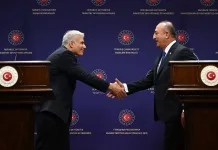Although a democracy, Kenya has had its fair share of elections deemed unjust and fraudulent. More often, those already holding presidential power assist the candidate they see fit to take over them, manipulating the electoral systems and local communities. The current population of Kenya is of 53 million people, with up to 14 million eligible voters. It became an independent state following its release from British colonial rule, and went through several political evolutions from a two-party state to that of a multi-party system under a new constitution passed in 2010. Kenya holds its general elections every five years, and has had four presidents since regaining independence in 1963, with their most recent being elected in this year’s round, taking place on August 9th. Voters usually vote based on tribe, and candidates’ electoral promises.

Synonymous with every election, infamous presidential aspirant Mr Raila Odinga does not go down without a fight. Since Odinga ran in his first general election in 1997, he has always been known to challenge the final results. He and his team challenged the presidential election results on August 22nd, a week after their release, and filed petitions at the Supreme Court. As per the constitution, the Kenyan Supreme Court remains the highest power at the legislative helm and such matters are assigned to their agenda. Following a petition from the opposing presidential candidate, the court has 14 days to judge whether the electoral process has been carried out fairly and justly, resulting in a suitable candidate being elected.
With Odinga and his team filing petitions following every election, Kenyan voters often prepare themselves for a period where the decision is pending. As Kenyans consider tribal criteria, and whether a candidate is a member of their tribe when voting, Kikuyu and Kalenjin tribes have been at the top of the tribal hierarchy in the political field. These two tribes fighting for power during each election often leads to tribal conflict. Moreso, Raila Odinga’s tribesmen, the Luo, often fall into this mix as they oppose the presidential election outcome through means of violence, including looting and street riots. This sometimes results in the involvement of the local police by throwing tear gas and firing empty shots.
William Ruto emerged as the president-elect in the recent elections on August 9th. Raila Odinga came in a close second with only a difference of around a million votes. However, the ruling favored Ruto after he took the challenging petition to court. Following this, representatives of Odinga’s party have spoken out, claiming that the court is biased, as Ruto currently serves as Kenya’s deputy president. However, once the court made its decision after a grueling week of deliberation, the state of Kenya proceeded to hold the swearing-in ceremony for the president-elect, and power was handed over to Ruto for the next five years.
Try and try again, as Raila Odinga has done, standing as a formidable competitor on the Kenyan political scene. He has demonstrated persistence in gaining the title of Kenya’s president, challenging his opponents without fail. Moreover, his father fought and lost the same race in 1992 – from as early as 1971, he was active, and famously known for being against the Kikuyu president at the time, Jomo Kenyatta. This led him to take on several roles as a prominent opposition leader; a role played by his son today. Some associate this consistent loss among the Odingas in politics with a bad omen.
Whether Raila will make a comeback in the next elections is difficult to predict, as circumstances such as age may keep him from participating in politics at such a level. It is not easy to see as far as five years from now what Kenya’s political scene will look like. The race to the State House will become more contested, with various leaders trying their luck in the presidential portion of the general elections.








